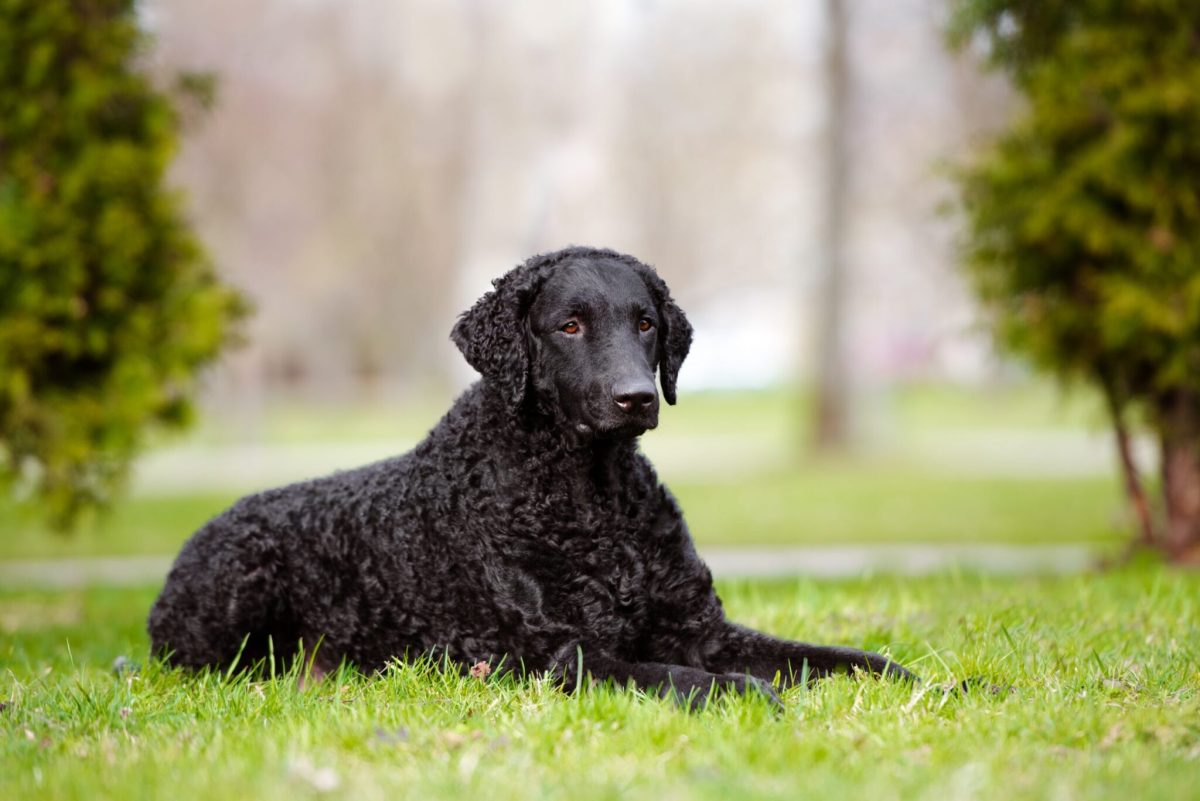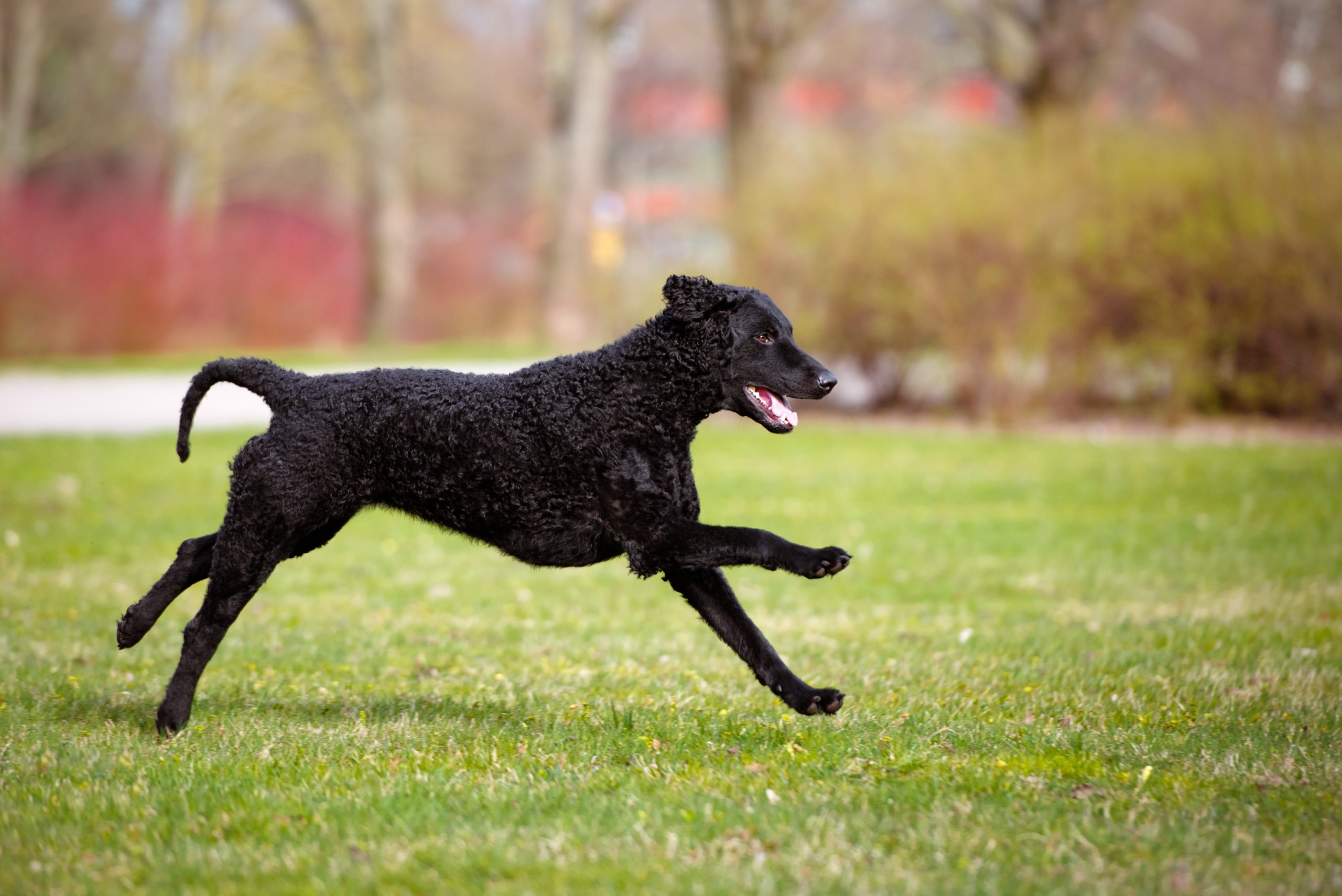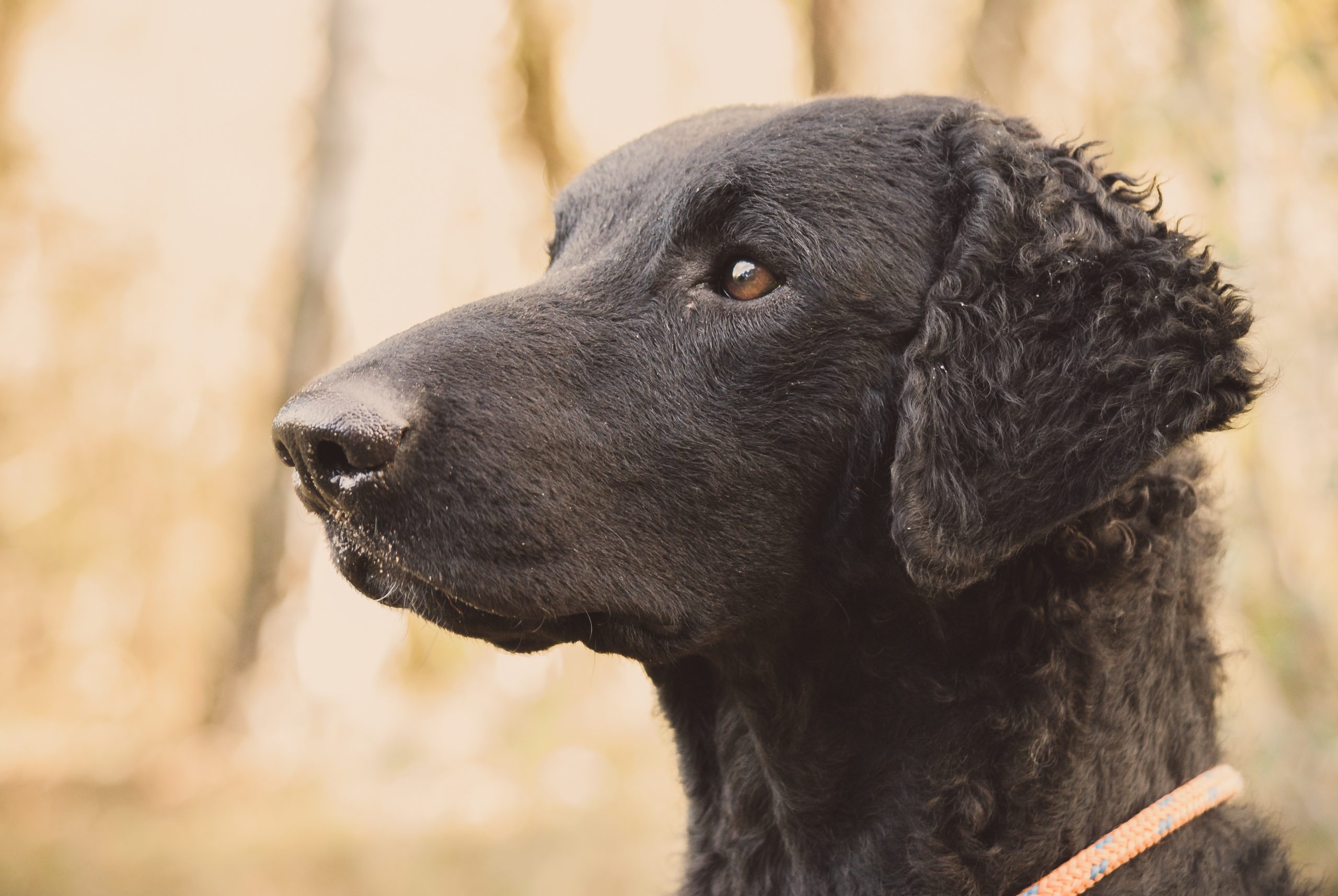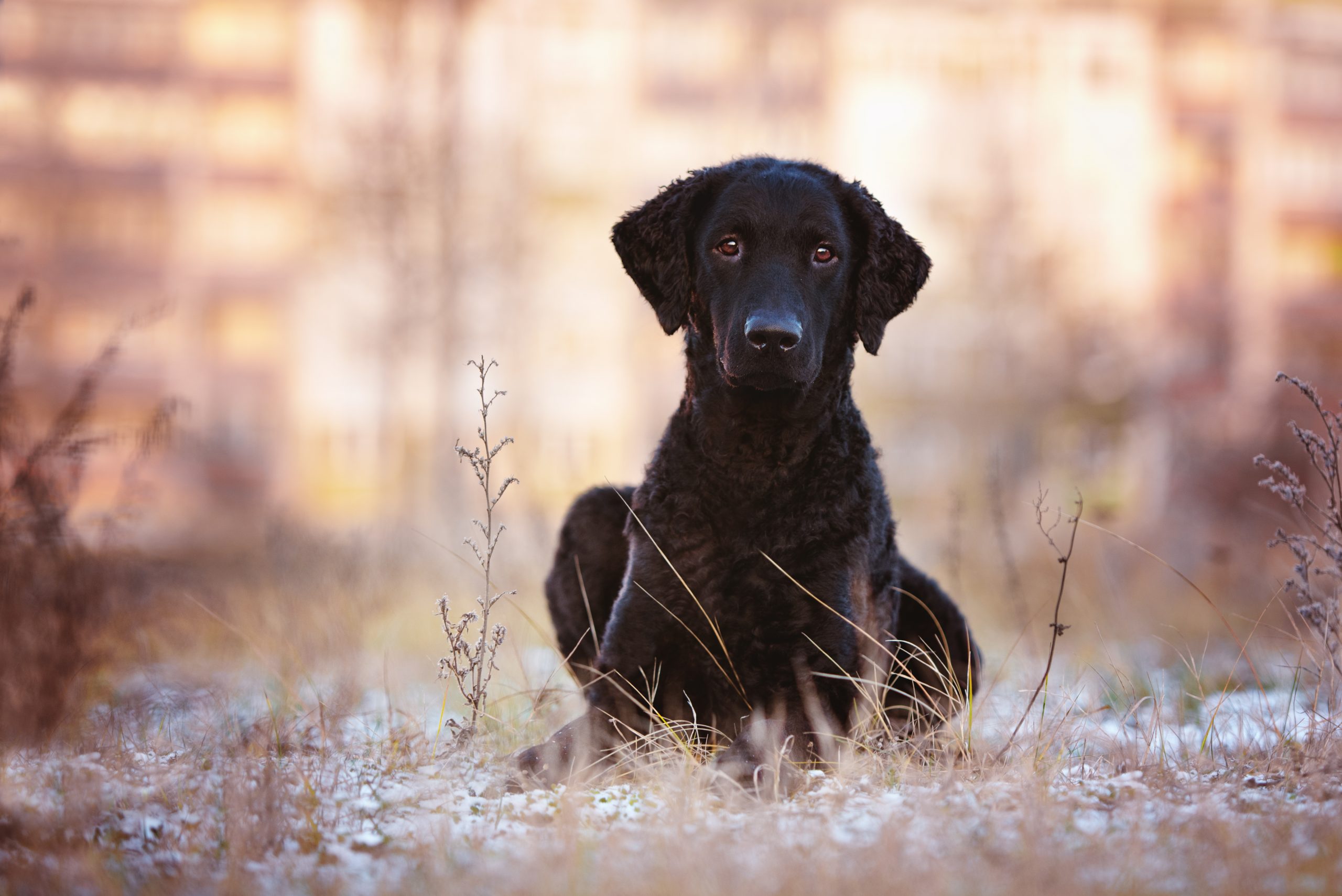Curly Coated Retriever
No products found which match your selection.
Shelter Dog Meal Donation Count:
No products found which match your selection.
The Curly-Coated Retriever is a versatile breed, equally adept in the field as a working dog and at home as a family companion. They are mainly known for their unique coat and love of water, making them excellent swimmers.
The Curly-Coated Retriever is one of the oldest retriever breeds, excelling in retrieving game from water. They are equally known for their gentle and friendly nature, making them excellent family companions.

The Curly-Coated Retriever originated in England in the early 19th century, primarily for upland bird and waterfowl hunting. They are thought to have descended from the now-extinct English Water Spaniel, the St. John’s water dog, and possibly the Irish Water Spaniel.




Common health issues include hip dysplasia, eye problems, and cardiac conditions. Regular health check-ups and genetic testing are recommended.
Their curly coat is low-maintenance, requiring occasional brushing and trimming. They should be bathed sparingly to maintain the coat's natural oils.
Curly-coated retrievers are high-energy dogs. Daily exercise, including swimming, running, and retrieving games, is vital for their physical and mental well-being.
Intelligent and independent, they respond well to consistent, positive training methods. Early socialization and obedience training are beneficial.
A balanced diet is essential for their age, size, and energy level. Portion control is necessary to prevent obesity, especially as they age.
The Curly-Coated Retriever is an excellent breed for active families or individuals. They thrive in environments where they can engage in physical activities and be part of family life. With proper care, exercise, training, and nutrition, a Curly-Coated Retriever can be a joyful and loyal companion.
The Curly-Coated Retriever is generally a robust breed, but like all dog breeds, they have specific health issues they may be prone to. Owners and breeders should be aware of these potential health concerns and consider appropriate tests to ensure the well-being of these dogs. Here's a list of common health issues in Curly-Coated Retrievers and the recommended tests for these conditions:
Ensuring that Curly-Coated Retrievers undergo these recommended tests, primarily if they are intended for breeding, can help in early detection and management of these conditions. Regular veterinary check-ups, a balanced diet, and maintaining a healthy lifestyle are key factors in promoting the long-term health of Curly-Coated Retrievers.
The iHeartDogs Free Rx Discount Card Program is a pet prescription discount card that can help you save money on your furry friend’s medications. The card is free to sign up for, and you can use it at participating pharmacies nationwide. To use the free program, simply show the card to your pharmacist when you pick up your pet’s prescription. The pharmacist will then scan the card, and you will receive a discount on the price of the medication.LEARN MORE
The annual cost of caring for a Curly-Coated Retriever can vary depending on various factors such as your location, the dog’s individual needs, and the standard of care you choose to provide. Here’s a breakdown of the typical expenses involved in caring for a Curly-Coated Retriever:
Total Estimated Annual Cost:
$2600 - $7200
It's important to note that these figures are estimates and can vary. Also, the first year of owning a dog can be more expensive due to one-time costs like spaying/neutering, initial vaccinations, and training. Regular budgeting for your dog's needs and an emergency fund for unforeseen costs are essential for responsible pet ownership.